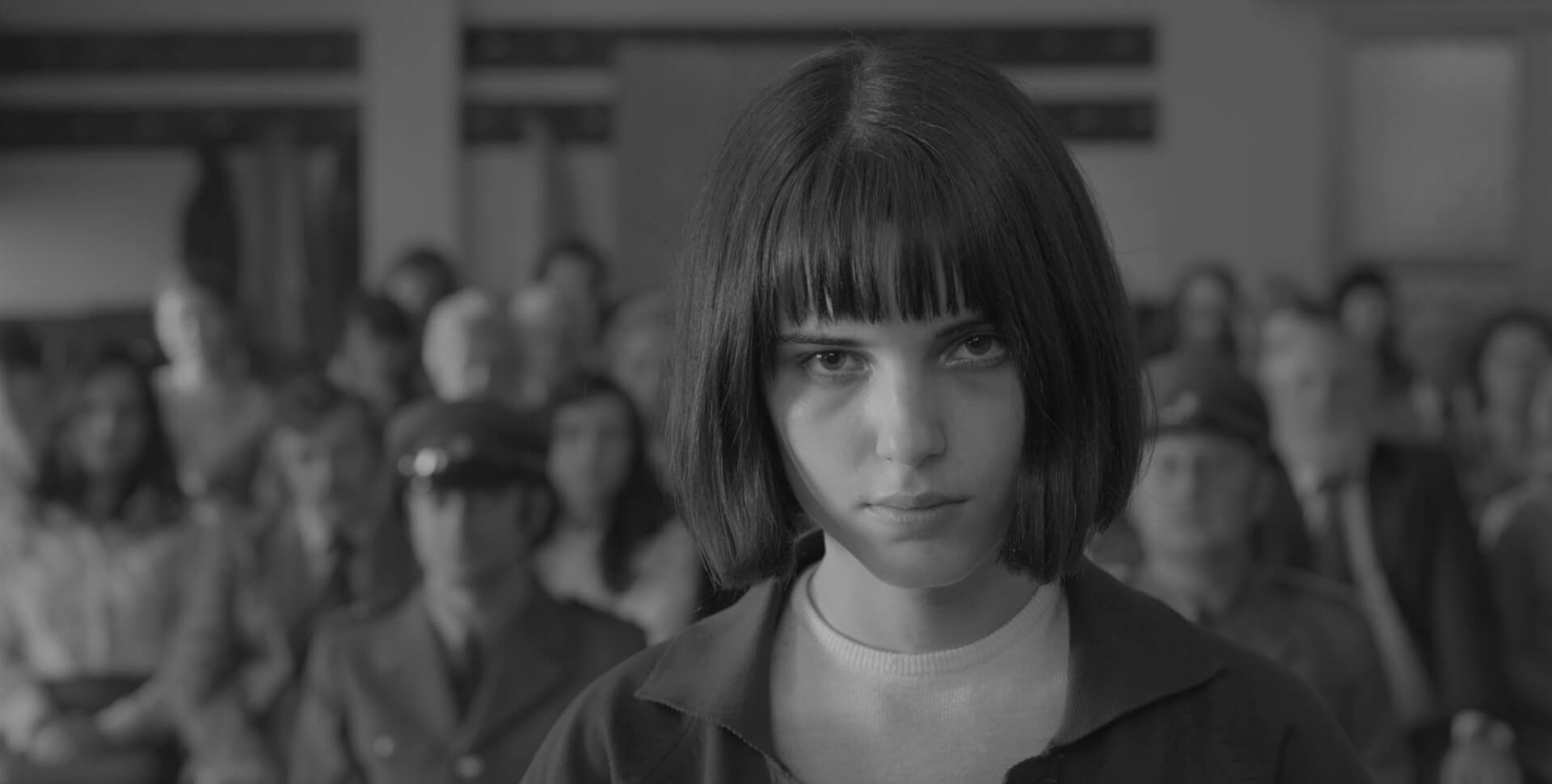I, Olga Hepnarova [2016] is the feature debut of writers/directors Petr Kazda and Tomas Weinreb telling the events leading up to the mass killing of a group of individuals by Olga Hepnarova (played by Michalina Olszanska) in 1973. Also starring Martin Pechlat, Klara Meliskova, and Marika Soposka.
“I know I’m a psycho, but an enlightened one.” Olga is an incredibly lonely, quiet, socially awkward, seemingly emotionally inept individual with a history of physical abuse, who’s poorly treated at work, and has confused thoughts and feelings on society and relationships. She ultimately drives a truck into a group of individuals, killing almost half of them, and being hung for the crime which she confidently admits. The film follows her through the events of her life leading up to this mass murder, showing the complicated and depressing life and thoughts she has. Filmed in a clean black and white with straight composition and no score throughout the whole of the runtime the film feels cold and empty much like Olga herself. Moments jump from quiet introspection to violence to sex to back to quiet introspection. Olga’s life is confusing, difficult, and her grasp of reality isn’t enough to take hold and set things right.
"All parents should be executed and all children put into institutions." The event itself happens quickly, with little time spent on the moment or the aftermath, which is appropriate as the event itself isn't what this story is about. The film is here to show the life of a woman who was convinced that this was the best means to be heard, the most efficient way to be remedied of life while sending a message. She chooses the death penalty, and to not plead insanity so that her death will hold more weight. The goal being that her actions will show what others who are bullied are capable of, and that bullying must stop for fear that these kinds of actions will occur again in the future. It's a bold and powerful stance to take, and the film does a good job of displaying how sad Olga's life is that this is the best possible solution to come to.
“As a victim of bullying, I was exceptional.” The writing and pacing don't show its true worth until a little ways into the film when the audience themselves are more likely get their bearings on the characters and events. Each performance seems honest enough, and the supporting cast adds their own color enough to brighten the stark, quiet, unhappy stoicism that Olga displays so much of the time. It’s a surprisingly effective film with a strong message about bullying and how our actions can shape the lives and behaviors of others.
A cold, stark film that honestly portrays the events and decisions of a depressed and confused woman in Czechoslovakia due to treatment and actions that affect all too many throughout the world.

